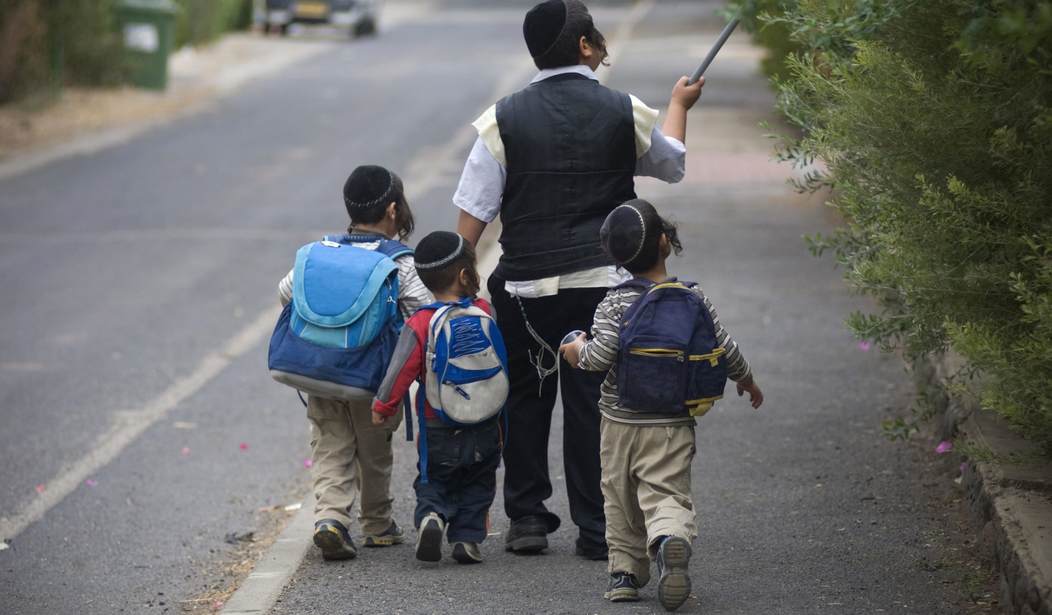In recent years, certain advocacy groups have criticized private Jewish schools, generally known as yeshivoth, claiming that the schools provide a substandard education. At issue is the interpretation of a New York state law passed in the late 19th century that requires private schools to provide an education “substantially equivalent” to that offered in the public schools. Through the decades, the various private school networks, whether religious or non-sectarian, have managed to meet this vague requirement to the satisfaction of local authorities and the New York State Education Department (NYSED).
Until now. Under substantial pressure from an organization called Young Advocates for Fair Education (YAFFED), which has actually filed suit against NYSED to try to force the matter, NYSED recently issued detailed guidelines concerning its interpretation of “substantially equivalent.” The guidelines contain a precise syllabus that must be followed, and also dictate how many hours per week are to be devoted to each of the secular subjects by grade level.
The result threw the world of private education in New York into a tizzy. Most glaringly, the guidance from NYSED required 35 hours a week of secular studies in grades 5 through 8 — a requirement which would have left virtually no time for sacred studies, the raison d’être of religious schools.
Under intense public pressure via petitions, telephone calls, and emails, NYSED revised the guidelines. It eliminated the time requirements in grades 5 and 6, and cut the amount of time required for secular education in grades 7 and 8 roughly by half.
While that represented an improvement, it does not change the fact that suddenly, after over a century of peaceful co-existence, New York’s public education authority is attempting to dictate the content and form of secular education in private schools with different value systems.
To present an idea of the potential impact this would have on the yeshivoth: Such schools often begin the day at 7:30 a.m. with the first of three daily prayer services, and continue until 5:30 or 6:00 p.m., devoting time in the afternoon to core secular subjects such as mathematics, English, social studies, and science. The primary emphasis, however, is on sacred studies.
The term “sacred” may suggest to anyone who has not grown up in the yeshiva system some sort of catechization or lectures in dogma. In fact, nothing could be further from the truth.
Elementary instruction begins with an intensive course in accurate reading and pronunciation of written Hebrew, and rapidly proceeds to reading and analysis of Biblical texts in the original language with emphasis on correct translations and understanding. As they progress, the children learn to analyze the texts and are encouraged to ask their own questions. Why does this passage appear here instead of some other place? Why is this word used rather than another? What was the motivation of this Biblical character? Students are encouraged to seek answers through the use of classical commentaries, some two millennia old.
In addition to this core curriculum, the children learn simple, applied halacha (“Jewish law”) concerning everyday practices, Jewish history, and moral and ethical training, all using classical Jewish sources.
In high school, the emphasis is changed. Even though they might have attended mixed classes in elementary school (at least in the lower grades), boys and girls now attend separate schools. The girls receive a much larger dose of secular studies, but also continue intensive Biblical studies with commentaries, practical halacha, and moral and ethical studies with an emphasis on Jewish philosophical writings.
The boys begin an intensive study of the Talmud. Written in a mixture of Hebrew and Aramaic, these texts were originally codified between 1,500 and 2,000 years ago in the Middle East (modern-day Israel and Iraq). The boys learn to pursue complex legal arguments, often expressed in a dialectic between several different sources, which they must understand and disentangle, using classical commentaries written in the same language. Though there is generally a daily lecture with an experienced instructor, which is usually quite interactive, these studies rapidly become quite autonomous. The students are generally divided in pairs (the technical term is chavrutha’oth) to review previously covered material, and to prepare material for the next day’s lecture. This is in addition to more moral and ethical instruction, and a more intensive study of halacha. Typically the school day runs to 9:00 p.m. or later, Sunday through Thursday (Fridays are shortened somewhat to enable preparations for the sabbath).
These studies involving intensive textual analysis steep the student in logic, critical thinking, and, in some cases, mathematical and geometrical reasoning and analysis. As a result, graduates of such academies are well-rounded and frequently go on to attend top-notch universities with an eye towards professional careers, often acquiring a state regents diploma on graduation.
All this without state intervention.
Aside from the unwanted micro-management, another problem is buried in the details of the NYSED guidelines: a requirement that all private schools in New York incorporate specific amounts of time to address such issues as “gender fluidity” and alternate sexual lifestyles.
Needless to say, schools which have been based on the principles of Biblical morality (including, most specifically, Leviticus XX, 18) are not the least bit interested in this particular set of modern innovations.









Join the conversation as a VIP Member